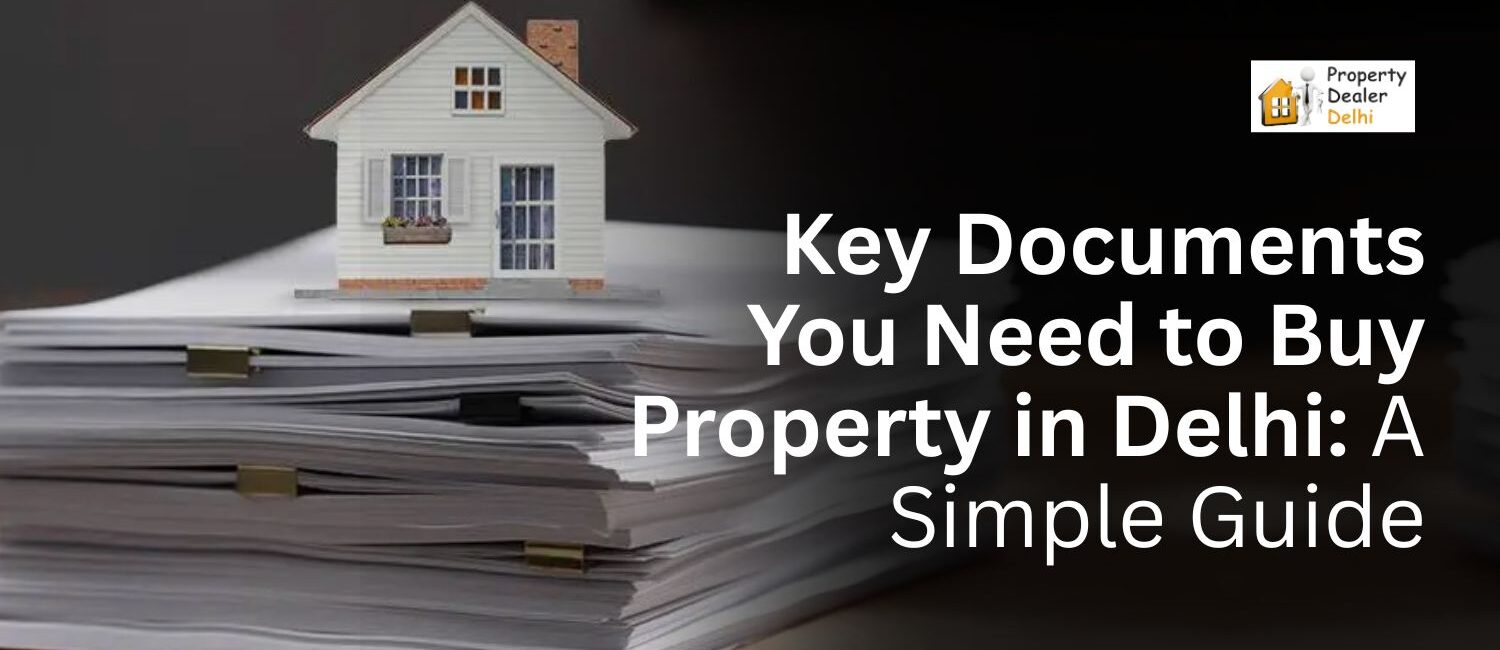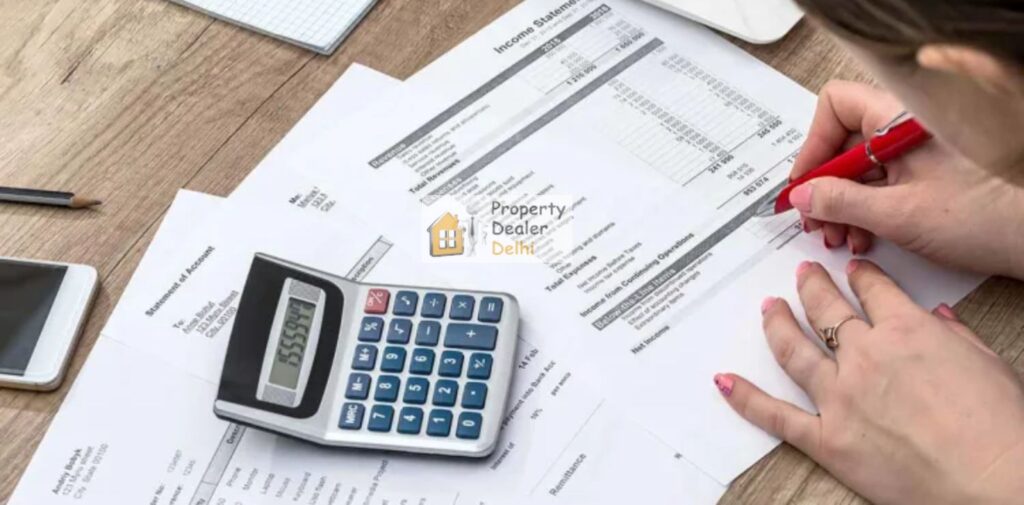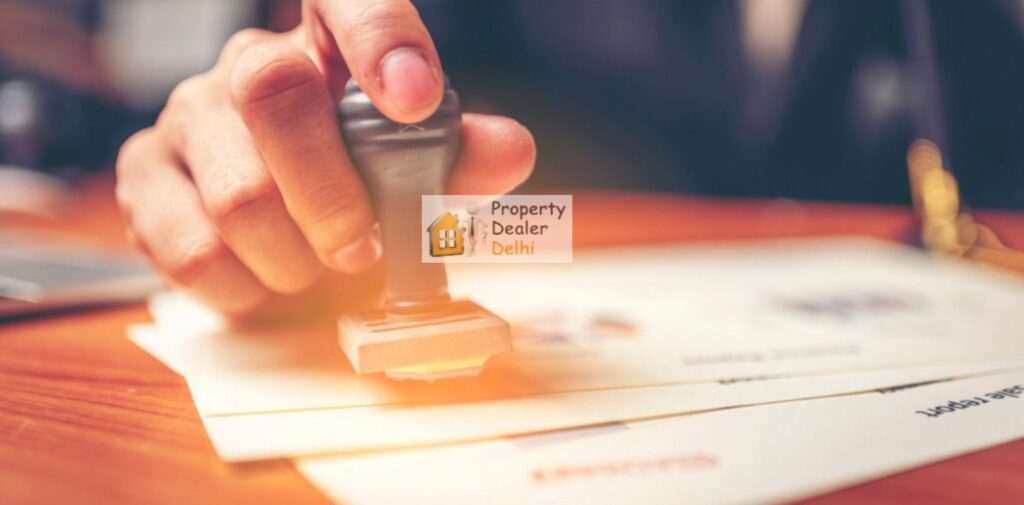
Buy property in Delhi can be an exciting experience, but it also involves a lot of paperwork and legal processes. Whether you’re purchasing a house, flat, or plot of land, ensuring you have the right documents is crucial for a smooth transaction. In Delhi, property laws and regulations are strict, and missing out on any important documents can lead to legal trouble or financial losses. This guide will walk you through the Key Documents You Need to Buy Property in Delhi.
Identity and Address Proof
The first set of documents you will need are proof of your identity and address. These are basic yet crucial for any property transaction.
- Identity Proof: This can be your Aadhar card, voter ID, passport, or driver’s license. It’s necessary to confirm your identity and establish that you are the rightful buyer.
- Address Proof: To prove your residence, you can submit documents like your Aadhar card, passport, utility bills (water, electricity, etc.), or a rental agreement. These help confirm where you live and serve as additional verification of your identity.
Both identity and address proofs are mandatory and are needed to comply with government and banking norms during the property purchase process.

Financial Documents
When purchasing property, financial documentation plays a major role. It helps establish your financial capacity and ensures that you can afford the property you are buying.
- Income Proof: This is an essential document that banks and financial institutions require when applying for a home loan. For salaried individuals, the salary slip for the last three to six months, bank statements, and income tax returns are usually required. For self-employed individuals, tax returns, profit and loss statements, and balance sheets for the last two years are needed.
- Bank Statements: Most lenders also require your bank statements (for the last 6 months) to check your financial stability and ensure that you have enough funds to repay the loan.
- Loan Approval Letter: If you are applying for a home loan to finance the property, you will need an approval letter from the lender. This document is proof that the bank or financial institution has sanctioned the loan amount.
Property-related Documents
The most important documents when buying a property are those related to the property itself. These documents ensure that the property is legally clear, without any disputes, and can be transferred to your name.
- Title Deed: This is one of the most important documents. It proves that the seller is the rightful owner of the property. The title deed should be clear, without any encumbrances or legal disputes. It should also be registered with the local sub-registrar’s office.
- Sale Deed: A sale deed is a legal document that proves the transfer of property ownership from the seller to the buyer. This document is crucial for the property to be legally transferred in your name. It includes details such as the sale amount, the property’s location, the terms and conditions of the sale, and signatures of both parties.
- Occupancy Certificate: An occupancy certificate is issued by the local municipal authorities to certify that the property complies with building laws and is ready for occupancy. It’s particularly important when buying a newly constructed property.
- No Objection Certificate (NOC): In some cases, a NOC from the builder or society is required to confirm that there are no pending dues on the property. If you are buying a flat or apartment, the builder or the society might issue this certificate to confirm that the property is free from any legal disputes.
- Property Tax Receipts: The seller should provide the latest property tax receipts to confirm that the property’s taxes have been paid up to date. This ensures that there are no outstanding dues on the property.
Legal Documents Related to Property and Seller
Before purchasing the property, make sure to verify certain legal documents to avoid any future issues.
- Encumbrance Certificate: This certificate verifies that the property is free from any legal dues or loans. If the property is mortgaged, this certificate will reflect the same, and you should ask for its clearance before proceeding.
- Builder-Buyer Agreement: If you are buying a newly constructed property or flat, a builder-buyer agreement is necessary. This document outlines the terms and conditions of the property purchase and ensures that the builder has followed all the required legal norms.
- Power of Attorney: If the property transaction is being carried out through a representative, a power of attorney is required. This legal document authorizes someone else to act on the buyer’s or seller’s behalf in the property transaction.

Stamp Duty and Registration Documents
Finally, once the sale deed is signed, it is important to register the property and pay the applicable stamp duty.
- Stamp Duty: In Delhi, stamp duty is payable at the time of registering the property. The stamp duty amount varies based on the property’s value and the buyer’s relationship with the seller. Generally, stamp duty for males is 6%, for females it is 4%, and for joint ownership, it’s a combination of both.
- Registration of Sale Deed: After the stamp duty is paid, the sale deed must be registered with the local sub-registrar’s office. This process makes the property transfer legally valid. Both the buyer and the seller need to be present during the registration process.
Conclusion: Documents You Need to Buy Property in Delhi
Buying property in Delhi involves gathering a variety of important documents. From proof of identity to financial records and property-related papers, each document plays a critical role in ensuring that the transaction is legal and smooth. Always verify that the property is free from legal disputes and that all the required documentation is in order. If you are unsure, it’s a good idea to seek legal advice to help you navigate the process. By preparing these documents in advance, you can avoid delays and ensure that your property purchase is secure and legally sound.

